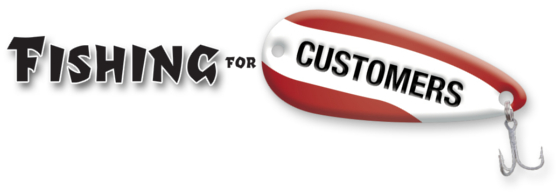 Are you in retail? Have your sales been affected by gas prices?
Are you in retail? Have your sales been affected by gas prices?
I just eavesdropped on a conversation between the managers of two local stores.*
They both noted that store traffic has decreased, and the telephone is ringing much more consistently, since the price of gas passed $3.50 per gallon. People are now calling to confirm inventory before they drive to the store.
There’s no doubt that, as surely as it’s effecting the rest of our economy, the price of gas is effecting retail sales, too.
There’s also no doubt that this is a time of great opportunity for those businesses who recognize what’s happening, and have the courage to take immediate action.
The change in consumer behavior will be short lived.
People will return to their old habits.
How do I know?
Because they always do.
When the Mother Earth News was a fledgling publication, people worried about protecting the ecology. Later they joined the conservation movement, then the environmental movement. Today, they’re enlisting in the green movement.
Roughly every decade the name changes. And every decade new people get involved. The old people are only willing to discomfort themselves so far.
Green is a great promotional tool.
Unfortunately, it runs counter to our consumer-centric way of life.
Have you seen the ads from the bottled water company claiming their thinner plastic bottle has less impact on the environment? Do you secretly wonder if people truly worried about the effects of plastic in landfills would drink tap water? They aren’t. They don’t.
The Toyota Yaris gets 40 mpg with a standard gasoline engine. The Lexus LS 600h L is a hybrid which gets 22 mpg. Care to bet how many people are so concerned about the price of gas that they switch from the Lexus to the Toyota? They aren’t, and they won’t.
For that matter, wouldn’t repairing the existing car rather than buying a new one be the ultimate in recycling?
People worried about the cost of gasoline should logically move closer to their jobs, wouldn’t you think? Today the average home-owning family demands another bedroom, another bath, an attached two car garage, and at least 800 square feet more living space than they did 50 years ago. Will they give up those larger suburban homes to economize? They aren’t, and they won’t.
Purchasing bedding, draperies, or carpets made of recyclable fabrics reduces the demand for new natural fibers by as much as 15 percent. More than 15 percent, and they wouldn’t be able to make the resulting fabrics fire retardant. Will people risk their families’ safety to recycle? They won’t, and they don’t.
Do we really need fresh fruit in January? Apparently we do, even if it’s flown in from the southern hemisphere on giant transport jets with excessive “carbon footprints.” In any economy, some people will pay a premium to get exactly what they want.
Please don’t misunderstand. I’m not passing judgment. Frankly, my job is to help sell fruit in January. I’m merely pointing out the realities of human nature. People are willing to accept only a certain amount of discomfort before they revert to form.
$4.19 a gallon? Drivers will get used to it.
Some of us remember when gas was $0.25 per gallon. We remember the grumbling when it hit $1.00. This story has been replayed a few times, and people always adjust. They will not change their consumption patterns for homes, bottled water, fresh fruit, or even gasoline… it will just take them a bit to grow accustomed to the changes.
What’s driving shoppers’ fears today is the speed at which prices are increasing.
How can shoppers explain what’s happening? Most can’t. And that inability to articulate leaves them simply threatened enough to invoke survival behaviors. People scared (consciously or unconsciously) for their family’s survival look for security. They hunker down and wait for the threat to pass. In the short term, they’ll spend money reluctantly, and only when they must.
But they will continue to buy.
Turn this highly-predictable behavior to your advantage. As my dear friend Tyler Engberg told me back in 1971, “There is great money to be made at times of confusion.”
Capitalize on confusion.
As long as people perceive a problem, you’ll gain market share by offering a solution.
Ad another body to your payroll if necessary, and cater to your customers survival fears. In your advertising, invite people to save gas by shopping with you.
Offer to check your inventory in order to be sure you have specific items in stock before your shoppers make the trip.
Offer order fulfillment and save them the trip. Confirm that you have the goods in stock, then take your customer’s credit card numbers and ship items to them at their homes or offices.
And, for goodness sakes, learn their names.
But if you intend to do these things, move quickly.** As soon as shoppers adjust to higher gas prices your competitive advantage goes away. You need every advantage when you’re fishing for customers.
Your Guide,
Chuck McKay
 Your Fishing for Customers guide, Chuck McKay, gets people to buy more of what you sell.
Your Fishing for Customers guide, Chuck McKay, gets people to buy more of what you sell.
Got questions about retail strategies for to counter high gas prices? Drop Chuck a note atChuckMcKay@ChuckMcKayOnLine.com. Or call him at 304-523-0163.
__________
* One of those managers was my wife. She, the other manager, and I were all having lunch at the same table. As much as I find a certain appeal in assuming the James Bond persona, I wasn’t sneaking around spying on my retail brethren.
** Need help crafting such ads? Come to the Boom Your Business Seminar in Nashville August 1 and 2, and catch Chris Maddock’s Ad Writing 101. Can’t make it to Nashville? Call me.
__________
